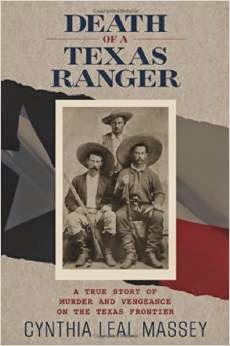By Natalie Bright
Down in the Skillet
In the olden days, the Texas Panhandle was down in the
skillet. On the cattle drive, the chuck wagon cook, or dough-wrangler, might
whip up a batch of sour-doughs with sop (biscuits and gravy), along with a
boggy top for dessert (a pie with only a bottom crust).
After work, a cowboy might dig around in his war-bag for a clean shirt. I’ve heard
the term used today by rodeo cowboys. A war-bag is a sports bag with their gear
for riding broncs or bulls. Back to the
olden days, if he could find clean duds, he’d slick-up for the shin-dig at a
neighboring ranch where they’d shake a good hoof until daybreak.
Talking Hoss
Raising quality beef steak was a real profession back then,
and continues to be so today. Technology has had some influence on the cattle
and ranching industry, but what remains is a simple way of speaking. There are
few story tellers equal to a group of cowboys gathered around talking hoss.
Our spring branding will be held in a few short months. I’m
already hearing mention that it’s time to “leg-up” the horses. They’ve had a
fairly easy winter and they’ll need to be in shape for a full week of riding
and moving cows. Our ranch foreman mentioned that he used to get “legged-up” in
his younger days. When he worked on a 10,000 head spread, he’d start a serious
work-out program to get in shape.
These types of conversations are gold to a writer’s
ear. I heard a cowboy mention that his
horse was smoked, which means the
horse had already been ridden hard and needed a rest so the cowboy had to quit
work for the day.
One simple word can say a lot.
Cowboy Slang
Reference
These witty and colorful catch phrases are interesting to me
and I love sprinkling a few throughout my stories. To help with the details and
jumpstart your muse, I’ve discovered a few invaluable reference books that I
find myself referring to again and again:
COWBOY LINGO by Ramon F. Adams, is a collection of
“slack-jaw words and whangdoodle ways” (Houghton Mifflin Company).
WESTERN WORDS, also by Adams. A dictionary of the Old West.
(Hippocrene Books, New York).
COWBOY SLANG by Edgar R. “Frosty” Potter.
HOW THE WEST WAS WORN by Chris Enss. Bustles and Buckskins
on the Wild Frontier. (The Globe Pequot Press, 2006)
Happy trails and keep writing those wonderful stories set in
the West!
Side Note: Portions of this blog post appeared on Prairie
Purview, nataliebright.com.
-------------
Natalie Bright is
an author, blogger, and enjoys speaking about history and story craft. Her
stories and articles have appeared in numerous publications, most recently this
March “A Cowboy’s Life” will appear in Appleseeds.
She is represented by Stephen Fraser, of The Jennifer DeChiara Literary
Agency, NYC, who is currently shopping her western novels for middle grade
readers. She holds a BBA from WTSU, her husband is a geologist and cattle
rancher, and they have two teenaged boys.














